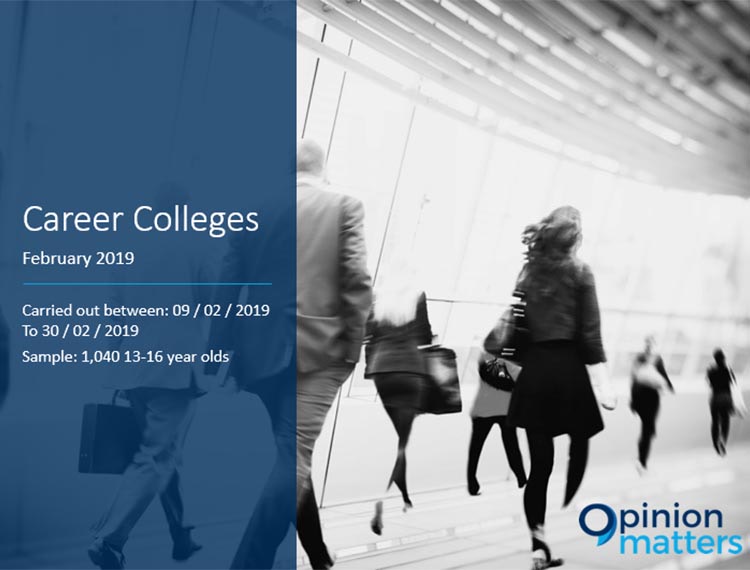New research reveals UK teenagers are worried next few years of education may be ‘waste of time’

New research reveals that teenagers are unsure where their education is heading.
Almost a third of British teenagers are worried that the next few years of their education may be a ‘waste of time’ and are unsure as to where their education and careers are heading.
The new study* of over 1000 13-16 year olds also reveals that two thirds (66%) of respondents believe league tables and academic grades to be the main focus of our current education system, as opposed to future careers (13%) or wellbeing (9%).
In addition, over half (54%) of the students asked say that their schools neglect to consider individual career ambitions, choosing instead to focus on the grades achieved.
This focus on academic achievement is having an alarming impact on young people’s futures – with a third (33%) stating that they have no idea about what career path to take and 17% saying they have no idea about any options outside of traditional academic routes, such as A-Levels.
Over a quarter of students (26%) said that the education system is ‘not fit for purpose’ with a further 37% saying they weren’t sure.
When asked why they felt this to be the case, almost a third (32%) of respondents said there is a ‘one size fits all’ approach to education, with a quarter (25%) saying it doesn’t fully cater to different learning needs, such as practical or visual learning. Therefore it is no surprise that a quarter (25%) feel that the curriculum and teaching styles are ‘outdated’.
The research, commissioned by the Career Colleges Trust, also asked the 13-16 year olds about GCSEs. 60% stated that their subject choices were ones they were likely to get the best grades in but don’t actually enjoy. Only 36% said they were confident that their choices were right for them and 13% admitted to dropping a subject for one in which they would get a better mark.
Ruth Gilbert and Bev Jones, Joint CEOs of the Career Colleges Trust, say:
“The education system is frequently talked about and debated, but rarely do we ask the young people themselves about their own experiences. This research highlights the concerns that teenagers have about their education and career pathways – and more support is needed to help them plan their futures.
“Employers are facing skills gaps, yet young people aren’t aware of the many opportunities open to them. With schools focused on academic achievement, students are struggling to make key decisions about their futures and not getting the exposure to industry and work experience that they need in order to do this.
“Our network of Career Colleges work in partnership with industry to ensure that young people are getting access to employers – and being given a clear line of sight to the many potential careers on offer. This needs to happen in schools and colleges – and I would urge the Government to take notice of what 13-16 years are feeling in relation to their education.”
Lauren Polson (18) from Orpington joined London South East Colleges’ Hospitality, Food and Enterprise College when she was 14. She says:
“The findings of this research do not surprise me. Many of my friends still don’t know what they want to do career-wise and have spent time doing exams and courses that don’t interest them. More guidance is needed in schools and different options should be made more widely available – academic routes don’t suit everyone.
“I left school and came to college at the age of 14, as I was interested in studying hospitality and my school just didn’t offer this option. It was the right thing to do and I was able to do my GCSEs while also gaining vocational qualifications in hospitality and catering.
“Throughout my course I was given lots of opportunities to experience the real world of work, going on placements as well as experts coming in to give masterclasses and advice. I am now doing an apprenticeship at BR6 Restaurant and am much further ahead in my career than I would have been if I’d taken a more traditional route.”
* The research for Career Colleges was carried out online by Opinion Matters between 09/01/2019 and 21/01/2019 amongst a panel resulting in 1000 respondents. All research conducted adheres to the MRS Codes of Conduct (2010) in the UK and ICC/ESOMAR World Research Guidelines. Opinion Matters is registered with the Information Commissioner’s Office and is fully compliant with the Data Protection Act (1998).











Responses